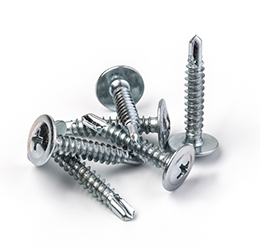
When discussing fasteners, grade refers to the material’s strength and composition. This rating system helps determine a fastener’s ability to handle specific loads and environmental conditions. The grade defines tensile strength, durability, and corrosion resistance.
What Grade Means for Solar Fasteners
In solar installations, the grade of a fastener is crucial due to the system’s exposure to harsh outdoor environments, including wind, rain, and extreme temperatures. Solar fasteners need to meet specific standards to ensure the system’s long-term durability and stability. Higher-grade fasteners are often used for critical points that require more strength and resilience, whereas lower-grade fasteners may be suitable for less demanding parts of the installation.
Grades of Solar Fasteners and Their Applications
- Grade 2: These are standard, low-strength fasteners often used for non-critical components. In solar applications, Grade 2 fasteners may be used for lightweight or non-load-bearing parts.
- Grade 5: Known for their medium strength, Grade 5 fasteners are typically used in applications that require moderate load-bearing capacity. In solar installations, they might be used for mounting solar panels on racks or lighter structural components.
- Grade 8: Offering high strength and durability, Grade 8 fasteners are ideal for load-bearing applications in solar systems, especially where high tension or environmental stress is expected. They are often used for securing heavy components like solar trackers or structural beams in utility-scale projects.
- Stainless Steel Grades (A2 and A4): Stainless steel fasteners are highly resistant to corrosion and are often used in outdoor solar installations. A2 (304 stainless steel) is corrosion-resistant and suitable for general outdoor use, while A4 (316 stainless steel) offers higher resistance to saltwater corrosion and is often used in coastal solar installations.
Conclusion
The grade of a solar fastener is a key factor in determining its strength, durability, and suitability for specific environments. Solar fasteners must be carefully selected based on the demands of the project, such as load requirements, environmental exposure, and long-term durability. Using the correct grade fasteners ensures that solar systems remain secure, functional, and efficient for many years, even in challenging environmental conditions.

